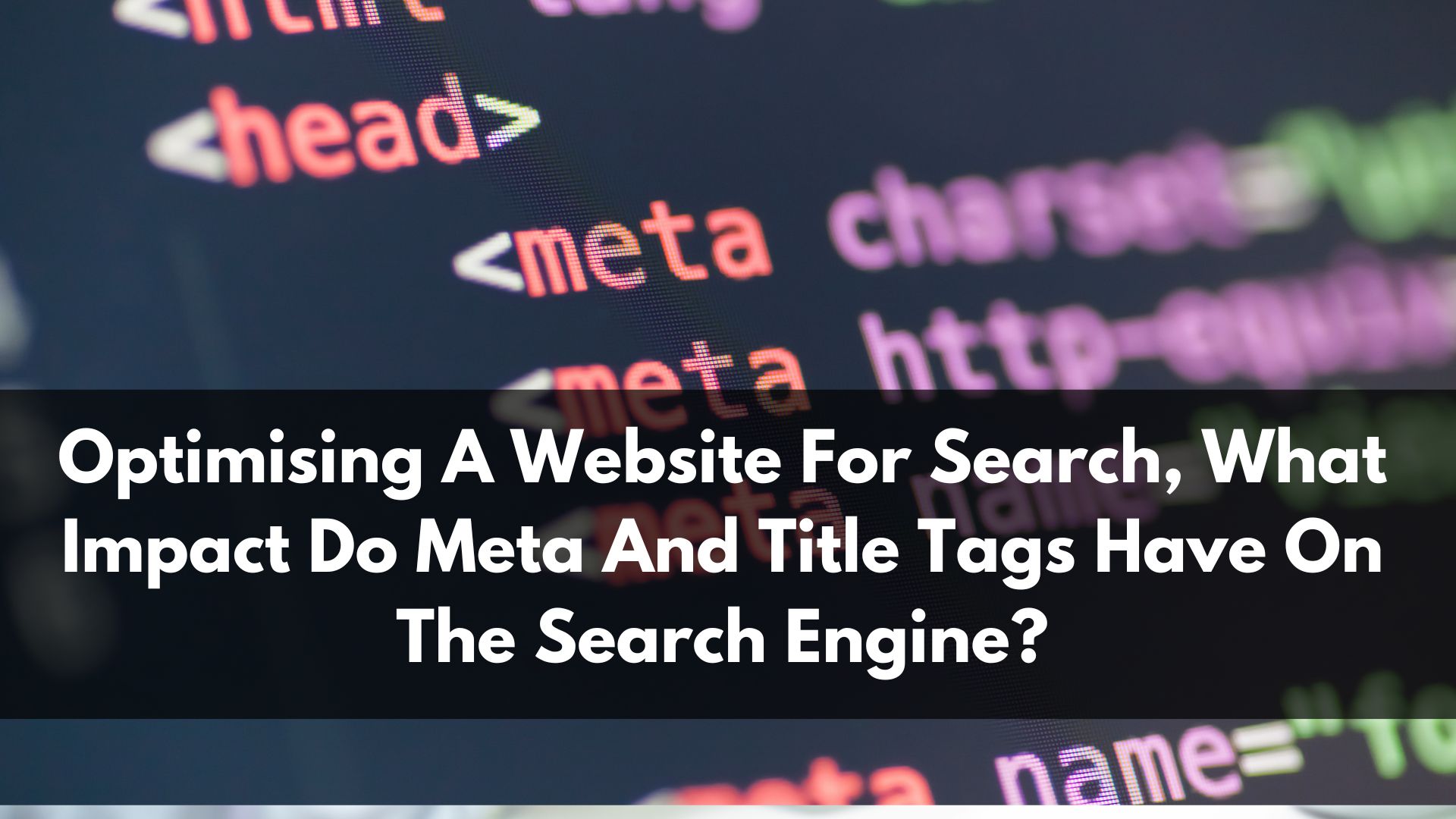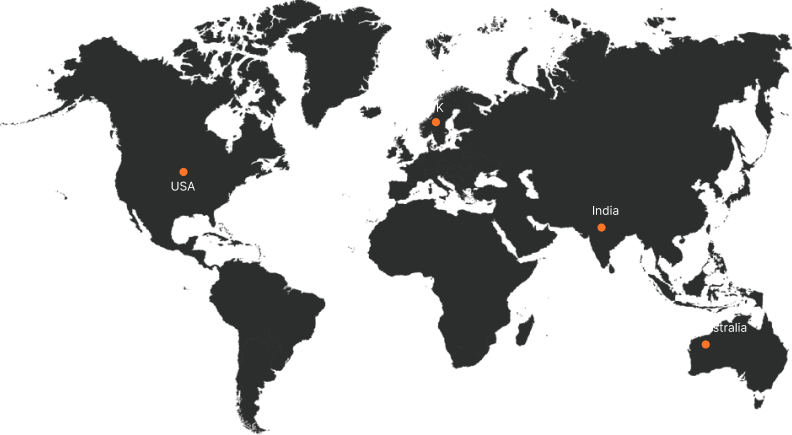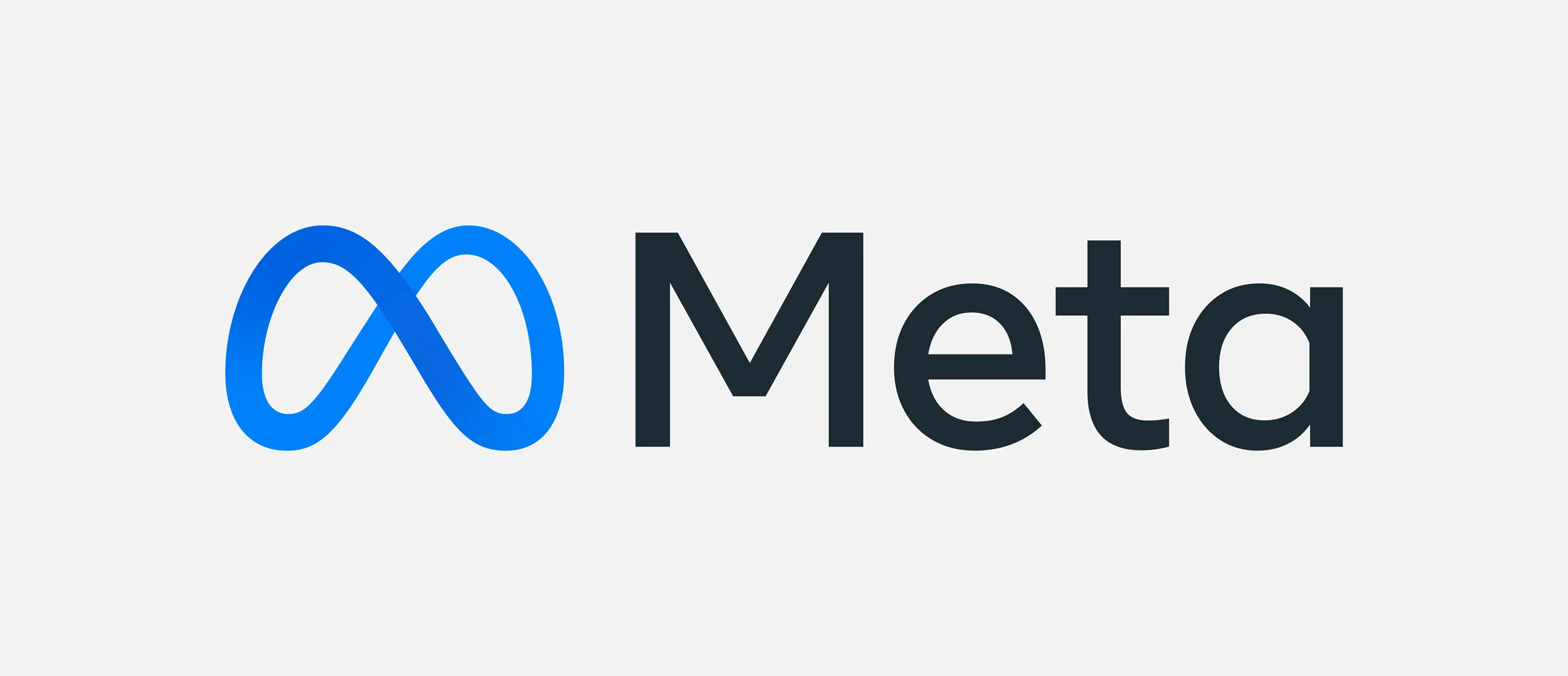When Optimising A Website For Search, What Impact Do Meta And Title Tags Have On The Search Engine?

There are many factors that come into play while optimizing a website for search engines. Among these meta tags and title tags hold significant importance. HTML elements might seem small, but they play a crucial role in how search engines understand and rank your content.
Title Tags
Title tags are HTML elements that specify the title of a webpage. They appear in the browser tab and are often used as the clickable headline on search engine results pages (SERPs).
Impact of Title Tags on SEO
Relevant Keywords: Title tags should include relevant keywords that accurately describe the page’s content. Search engines make use of these tags to understand the page’s topic, and keywords help rank the page for specific search queries.
Click through Rates: A title tag can attract more clicks from users on the SERPs. Higher click-through rates (CTR) signal to search engines that your page is valuable.
Length of Title Tag: Search engines display the first 50-60 characters of a title tag. Keeping the title within this length ensures that it is fully visible on SERPs, making it more likely to attract clicks.
Meta Descriptions
Meta descriptions are summaries of a webpage’s content, displayed under the title tag on SERPs. They provide a brief profile of what users can expect from the page.
Impact of Meta Description on SEO
CTR Influence: A precise meta description can significantly improve your CTR (Click-through rate) by giving users a reason to click on your link over others.
Keyword Use: Including related keywords in the meta description can increase the likelihood that these terms will be bolded in the SERP snippet, catching users’ attention.
Indirect Ranking Factor: Meta descriptions aren’t a direct ranking factor; a higher CTR from a compelling meta description can indirectly improve rankings as it indicates to search engines that your content is relevant.
Meta Tags
Meta Keywords: Once a crucial part of SEO, meta keywords have lost their significance. Search engines now often ignore them due to keyword stuffing abuses.
Meta Robots: This tag instructs search engines on indexing and following links on your page. For example, index, follow allows indexing and link-following, while index, no-follow prevents it.
Impact of Meta Tags on SEO
Control Over Indexing: Meta robot tags can control which pages search engines index. It helps prevent duplicate content issues or keep certain pages private.
Crawl Budget Management: Directing search engines on which pages to index can optimize your crawl budget, ensuring essential pages are crawled and indexed more frequently.

Integration of Meta and Title Tags
The title tag and meta description work closely to give search engines and users a complete picture. While the title tag provides a brief, focused headline, the meta description offers a more detailed preview of the content.
Impact on Overall SEO:
- Enhanced SERP Appearance: Carefully optimising your title and meta description can significantly boost the visibility of your listing on SERPs, leading to higher CTRs and reader engagement.
- Improved Relevance: Search engines use both elements to decide the relevancy of your page to search queries, helping to improve your rankings for relevant keywords.
Conclusion
Meta and title tags are fundamental components of SEO that significantly influence how search engines perceive and rank your content. By carefully crafting these elements with relevant keywords, clear descriptions, and engaging calls-to-action, you can enhance your website’s visibility, attract more clicks, and drive more traffic. However, it’s not a one-time task. Regularly optimizing and updating your meta and title tags is not just important, it’s essential for improving your search engine rankings in the ever-evolving digital landscape.











